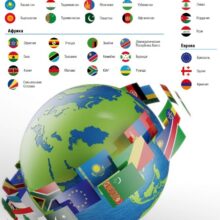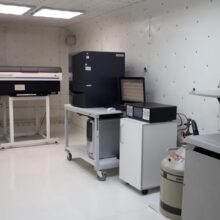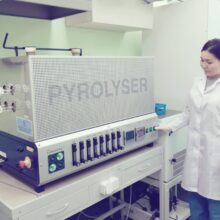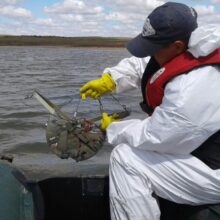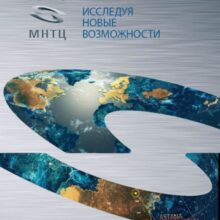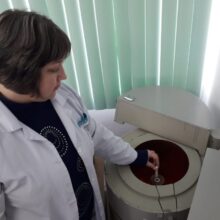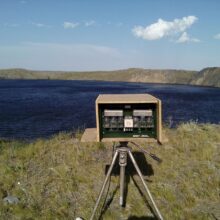Халықаралық ғылыми-техникалық орталық
07.08.2020
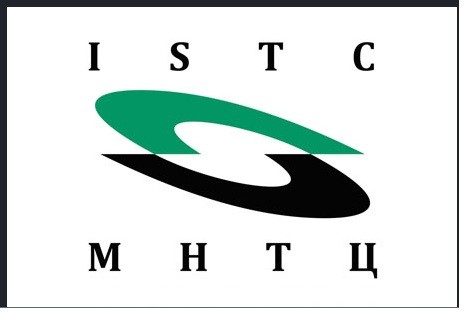
Халықаралық ғылыми-техникалық орталық (ХҒТО) – бұл Қазақстан, Армения, Тәжікстан, Қырғызстан және Грузия ғалымдарының ЕО, Жапония, Корея Республикасы, Норвегия, АҚШ және басқа елдердің ғылыми орталықтарындағы әріптестерімен іскерлік байланысын орнататын үкіметаралық ұйым. ХҒТО халықаралық ғылыми жобаларды іске асыруға септігін тигізеді және ғаламдық ғылыми және іскер қауымдастыққа бірлескен даму және жетекші пәнаралық зерттеулер жүргізу үшін бірегей ғылыми ноу-хауға ие қатысушы елдердің институттарын табуға және жұмылдыруға көмектеседі. ХҒТО ресурстарының көп бөлігі ғылым мен технологияны өткен проблемалық мұраларға қолдануға, әсіресе ауыр экономикалық дағдарыс кезінде институттар мен зерттеушілердің ғылыми әлеуетін қолдауға арналған.
Соңғы онжылдықта Қазақстан өзінің ғылыми әлеуетін едәуір дамытып, ХҒТО көптеген бастамашыл жобаларын дамытуда жетекші рөлдердің бірін атқарды. Бұл сейсмология, ядролық сараптама, радиоактивті көздердің қаупін азайту, ядролық қаруды таратпау, қорғаныс пен қауіпсіздікті қамтамасыз ету әлеуетін нығайту және басқа салалардағы ынтымақтастық.
Ағымдағы жылы Қазақстан мен ХҒТО арасындағы бірлескен ынтымақтастық сәтті жалғасын тапты. ХҒТО басқарушы кеңесінің 2020 жылдың 15 шілдесінде өткен 70-ші отырысы барысында ҚР ҰЯО РМК дайындаған 2 жобалық ұсыныстарды іске асыруға қаражат бөлу туралы шешім қабылданды:
1. «Қазақстанның орман экожүйелеріндегі климаттық өзгерістер мен топырақ жамылғысының ластануын зерттеу» жобасы (KZ-2620, іске асыру мерзімі 24 ай) климаттың өзгеру проблемаларын зерттеуге арналған.
Жұмыста қоршаған ортадағы климаттық өзгерістердің деңгейі мен қоршаған ортадағы радиокөміртектердің қозғалысын зерттеу арқылы адамның антропогендік қызметінің осы өзгерістерге әсер ету дәрежесін зерттеу нәтижелері көрсетіледі. Бұндай зерттеулер уақтылы әрекет ету стратегиясын, сондай-ақ адамдар мен қоршаған ортаны осындай өзгерістерге бейімдеу үшін Қазақстанда климаттың өзгеруіне қатысты болжамдарды жүргізу үшін қажет.
2. «Жасанды радионуклидтердің мобильдігі және биожетімділігі» жобасы (KZ-2620, іске асыру мерзімі 36 ай) ядролық жарылыс болған жерлерде радиоактивті элементтерді табу формаларының таралуын зерттеуге, олардың геожүйелердегі биожетімділігі мен қозғалғыштығын анықтауға бағытталған. Алынған нәтижелер адамдар мен қоршаған ортаға радиациялық қауіпті азайту мақсатында атом электр станцияларындағы радиациялық апаттар мен әртүрлі радиациялық қауіпті нысандардағы апаттық радиациялық жағдайлардың әсерінен аумақтардағы радиациялық ахуалдың дамуын болжамдық бағалау үшін пайдаланылады.




